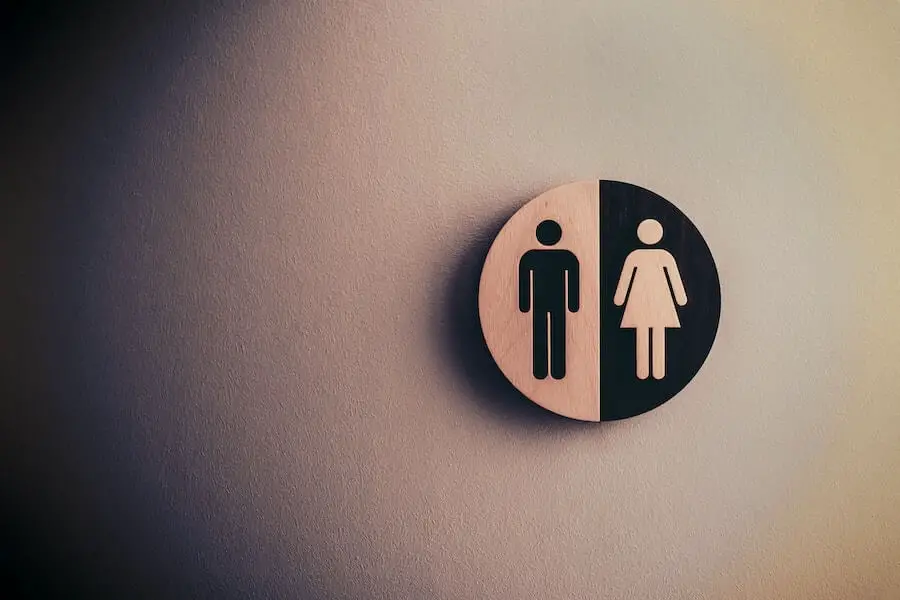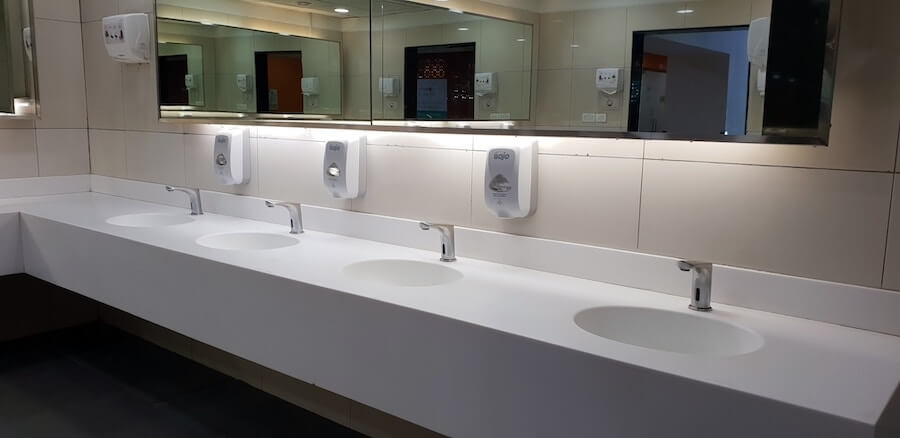Public restrooms play a vital role in our daily lives, providing a necessary facility for personal hygiene and comfort. However, whether one can use a restroom at a business establishment without purchasing has been discussed.

This article will explore access to public restrooms, mainly focusing on McDonald’s, one of the world’s largest fast-food chains.
We will delve into restroom policies, the connection between purchases and restroom access, evolving attitudes toward restroom access, customer needs, business expectations, potential misuse concerns, positive impacts on reputation, transparency in restroom policies, local regulations, alternatives for non-patrons, adapting to changing norms, and conclude with a final reflection on using McDonald’s restrooms without purchasing.
Access to Public Restrooms
The Importance of Accessible Restrooms
Access to clean and convenient public restrooms is crucial for individuals away from home.
Whether during a long road trip, a day of shopping, or simply being out and about in the city, the availability of accessible restrooms promotes personal hygiene, comfort, and overall well-being.
Restroom Policies in Different Establishments
Different establishments have varying policies when it comes to public restroom access.
Some businesses maintain strict policies restricting restroom usage to paying customers only, while others adopt a more lenient approach, allowing non-patrons to utilize their facilities.
As a prominent fast-food chain, McDonald’s has specific restroom policies that cater to the needs of its customers and the community.
Public Restrooms in Restaurants
Balancing Customer Needs and Business Operations
For restaurants, providing clean and accessible restrooms is not just about meeting basic customer needs but also enhancing the overall dining experience.
A pleasant restroom experience can leave a positive impression on customers and contribute to their satisfaction with the establishment.
Striking a balance between customer needs and efficient business operations is crucial in creating a pleasant atmosphere for patrons and non-patrons who require restroom access.
Role of Restrooms in Customer Experience
Restrooms are an essential component of the overall customer experience in restaurants. A well-maintained restroom reflects positively on the establishment and its commitment to hygiene and customer care.
On the other hand, a poorly maintained or inaccessible restroom can leave a negative impression, potentially impacting a restaurant’s reputation and customer loyalty.
McDonald’s Restroom Policies
Understanding McDonald’s Restroom Policies
McDonald’s has established specific restroom policies that outline the guidelines for restroom usage at their locations.
While these policies may vary based on the location and other factors, McDonald’s generally aims to provide restroom access to paying customers and non-patrons who require it.
Variations Based on Location and Regulations
It is important to note that McDonald’s restroom policies can vary depending on local regulations, safety measures, and the specific needs of each location. In some areas, stricter regulations or security concerns may influence restroom access.
Therefore, it is advisable to familiarize oneself with the specific policies of the McDonald’s location.
Purchasing Requirement for Restroom Access
Examining the Connection Between Purchases and Restrooms
The connection between purchasing and accessing a restroom is often discussed. In many establishments, including McDonald’s, the expectation is that restroom usage is primarily reserved for paying customers.
This expectation serves as a way to ensure that the facilities are mostly available to those who contribute to the business’s revenue.
Addressing Restroom Access Rules
While purchasing food or beverages is typically associated with gaining access to a restroom, it is essential to recognize that each situation may warrant different considerations.
McDonald’s and other businesses may have additional guidelines to accommodate non-patrons requiring restroom access. These guidelines are often in place to balance the needs of both customers and non-customers.
Evolving Attitudes Toward Restroom Access
Community Expectations and Convenience
As societal norms continue to evolve, so does the expectation of restroom access for non-customers. Communities often emphasize the importance of providing restroom facilities to all individuals, regardless of whether they make a purchase.
This emphasis on inclusivity and convenience has led to changes in restroom policies across various industries, including the hospitality sector.
Shifting Policies in the Hospitality Industry
The hospitality industry, including fast-food chains like McDonald’s, has witnessed a shift in restroom access policies in recent years.
Many establishments have revised their policies to allow non-patrons to use their restrooms, recognizing the universal need for restroom facilities and their positive impact on customer satisfaction and public perception.
Customer Comfort and Needs
Ensuring Hygiene and Cleanliness

One of the primary responsibilities of businesses, including McDonald’s, is to provide clean and well-maintained restrooms for their customers and non-patrons. Upholding high standards of hygiene and cleanliness is essential to ensure a comfortable and safe restroom experience for everyone.
Considerations for Non-Patrons
While McDonald’s primarily caters to its paying customers, they also recognize the needs of non-patrons who require access to their restrooms. The specific policies may vary based on location, but McDonald’s strives to balance serving customers and accommodating those needing restroom facilities.
Transparency in Restroom Policies
Clear Communication and Signage
To ensure a smooth experience for customers and non-patrons, businesses like McDonald’s should have clear communication and signage regarding their restroom policies. This transparency helps individuals understand the expectations and guidelines for accessing the facilities.
Updating Policies and Information
Restroom policies can change over time due to various factors, such as local regulations or customer feedback. It is essential for businesses to regularly update and communicate any changes in their restroom policies to ensure everyone is aware of the current guidelines.
Alternatives for Non-Patrons
Community Facilities and Public Restrooms
In addition to establishments like McDonald’s, public restrooms and community facilities are often available for non-patrons to use. Municipal buildings, libraries, parks, and transportation hubs may provide restroom facilities accessible to the public.
Adapting to Changing Norms
As societal norms continue to evolve, businesses must adapt to meet the changing expectations of restroom access.
While purchasing may have been a strict requirement in the past, there is a growing recognition of the universal need for restroom facilities. This acknowledgment has led to more inclusive policies in many establishments.
Using McDonald’s Restrooms Without Purchasing
Understanding Individual Circumstances
While some McDonald’s locations may enforce a purchasing requirement for restroom access, it is essential to consider individual circumstances.
If someone urgently needs to use a restroom and there are no other options available, it may be worth explaining the situation to the staff and requesting access to the facilities.
However, respecting each McDonald’s location’s policies and guidelines is essential. If the staff informs you that purchasing is required, it is advisable to either purchase or seek alternative restroom facilities nearby.

Conclusion
Restroom access at McDonald’s can vary based on location, local regulations, and specific policies. While purchasing food or beverages is often associated with gaining access to a restroom, there is increasing recognition of the universal need for restroom facilities.
Businesses, including McDonald’s, strive to balance serving their customers and accommodating non-patrons who require restroom access. Clear communication, transparency, and adapting to changing norms are crucial to ensuring a positive restroom experience for all individuals.





